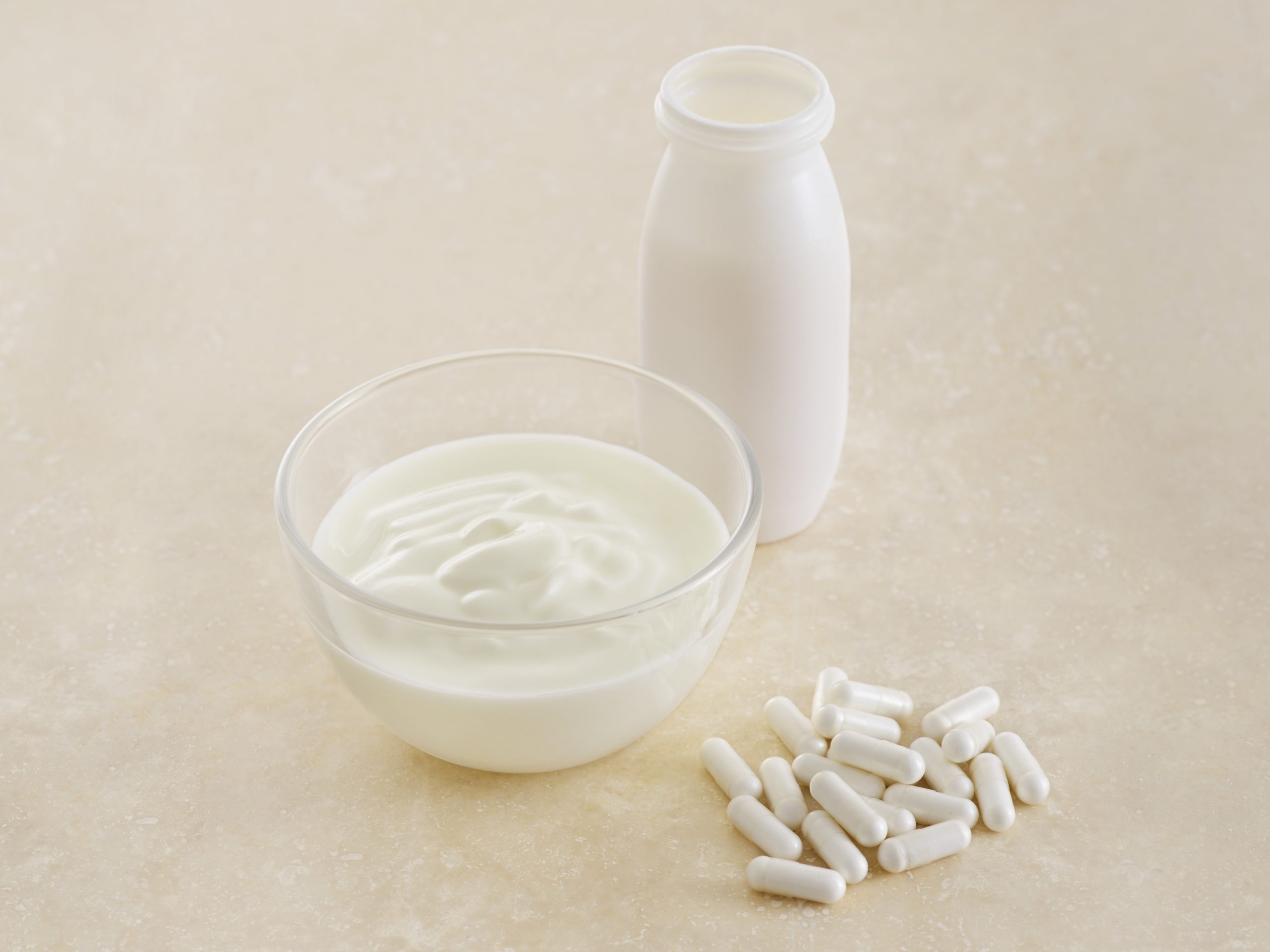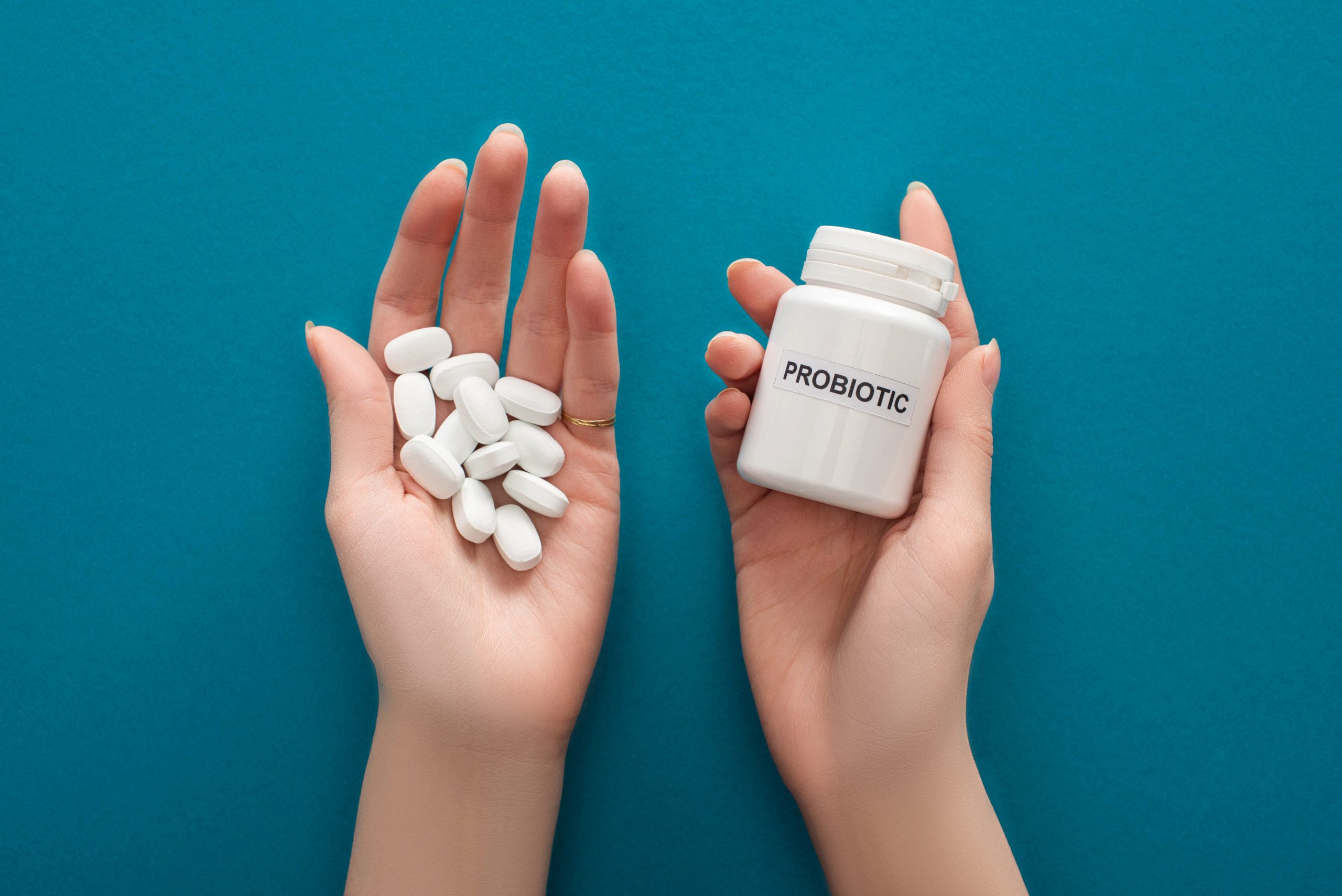According to the Cleveland Clinic, the human body houses trillions of microorganisms to support our health and functionality.
Your gut flora consists of hundreds of types of these microorganisms, creating a complex ecosystem of 300-500 bacterial species.
These microorganisms are mostly found in your colon, large intestine, and the end of your digestive tract. Your gut flora performs numerous important bodily functions, including manufacturing vitamin K and various B vitamins and turning certain fibers into fats that stimulate your immune system and help strengthen your gut wall.
Various forms and strains of probiotics, but the most common or well-known probiotic is Acidophilus which helps restore microbiome balance and is naturally found in the digestive tract, mouth, urinary tract, vagina, and lungs.

Benefits of Probiotics
The benefits of probiotics can be experienced when you consume probiotics in adequate amounts, which can be obtained through certain foods or supplements. A healthy gut microbiome can have several benefits, including:

- Reduced inflammation
- Best breakdown and absorption of nutrients
- Boosted immune function to better recognize and eliminate harmful bacteria
- Preventing and healing bacterial infections that may cause UTIs, yeast infections, diarrhea, atopic dermatitis, and certain dental conditions
- Improvement for general digestive issues related to IBS, constipation, gas, or breaking down and recycling bile
Foods Packed With Probiotics
Fermented foods and dairy items with live and active cultures are an option to get more probiotics to your gut:
- Yogurts
- Kefir
- Sauerkraut
- Cottage cheese
- Pickles
- Tempeh
- Kimchi
- Kombucha
- Miso soup
- Sour cream
- Soy milk


Probiotics Supplements
Diet and exercise play a big role in maintaining a healthy gut, but a probiotic supplement may support your gut health in certain instances. Many healthcare professionals might suggest taking a probiotic when prescribed a round of antibiotics. While antibiotics fight off the bad bacteria, they can also fight the good bacteria living in your gut, leading to antibiotic-associated diarrhea and IBS.
Probiotics can be purchased over the counter in grocery stores, drug stores, and health and wellness specialty stores. They also may come in various forms, including capsules, powders, and liquids. It’s extremely important to recognize that the FDA does not regulate probiotics, so it’s a good idea to consult a healthcare provider when starting. A trusted healthcare practitioner can advise you on reputable products (look for third-party testing), the right strain and dosage, and any side effects. Side effects may include gas and mild abdominal discomfort.
Sources:
- https://my.clevelandclinic.org/health/treatments/14598-probiotics
- https://www.health.harvard.edu/staying-healthy/the-benefits-of-probiotics
- https://www.healthline.com/nutrition/8-health-benefits-of-probiotics
- https://www.nccih.nih.gov/health/probiotics-what-you-need-to-know
- https://www.webmd.com/digestive-disorders/what-are-probiotics/
- https://www.mayoclinic.org/healthy-lifestyle/nutrition-and-healthy-eating/expert-answers/probiotics/faq-20058065
- https://www.healthline.com/nutrition/probiotics-101
